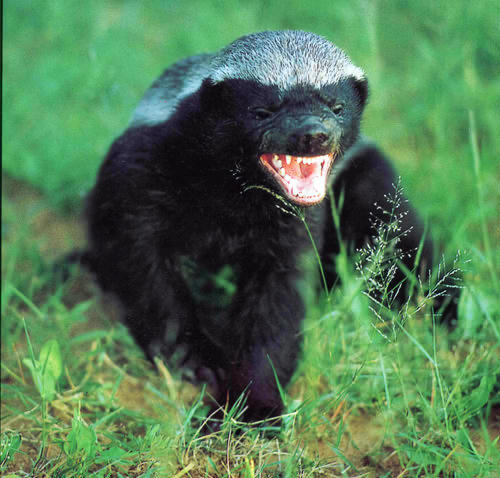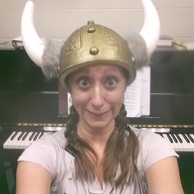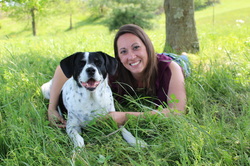| A couple of years ago I went deer hunting with my best friend. If you've never been hunting, I promise you it's nothing like you imagine. Hunting seems like a fairly sedentary activity, and in truth a good portion of it involves keeping your muscles from freezing or cramping. Still, I trained for this excursion like I was entering an Ironman competition! First, strategic layering. You have to be in the woods before the deer wake up. Let me reiterate: before the deer wake up. It's still night, and temperatures hover around freezing. By the time the deer bed down (between 11am and 2pm), temps may have risen into the 60s. (Welcome to Kentucky, where the weather swings like the moods of a teenage girl.) I wore one pair of boots, two pairs of socks, two pairs of pants, a tank top, t-shirt, thermal shirt, jacket, hoodie, fleece vest, heavy coat, two pairs of gloves, and a hat. All of this had to be washed, aired, and de-scented. You must carry everything you need into and out of the woods. In the dark. With frost on the ground. Silently. When I say everything, I mean everything - even a jar to pee in. First aid, food, hand/foot warmers, seat, ammo, knife, drag rope, flashlight, tags, calls, cover scent, water. All that weight on your back across uneven terrain. Oh, did I mention you're also carrying a loaded rifle that weighs up to 12 lbs.? It takes more than careful aim to be a successful hunter. You have to be able to shoulder and balance your gun (silently) for hours on end. I exercised with my rifle for about a month beforehand; I practiced balancing it while sitting, kneeling, crouching, lying down, standing. I took shots at the range in all those positions. It does not take long for 7lbs to feel like 70. While at the range we also "sighted in". One's accuracy can be affected by air and barrel temperature, wind speed and direction, and the physical sights of the gun. The deer don't stand there and wait to be shot. You get one trigger pull, maybe two. The first shot is your only shot. Consequently, a hunter tunes his/her gun to be accurate within half an inch with a cold barrel prior to taking it into the woods. This is called "sighting in". I had to learn how to breathe. Hunters are susceptible to "buck fever", a state of excitement in which they breathe rapidly; this throws off their shot. A good hunter takes his/her shot between heartbeats, which requires both the awareness and control of one's breath. When Opening Day came I was packed and ready. I woke up in the barn at 4am and traversed the hill to my appointed spot. I was in place, set up, and quiet well before daybreak. You don't notice dawn anywhere like you do in the woods. Other places it creeps over you, its gray fingers lifting the blanket of night gradually. In the woods, daybreak seems as abrupt as someone turning on the light at the end of the hallway. Perhaps because you've been sitting still since you could see the bone white moon full against its blue-black curtain, that first sliver of dawn is like a terrestrial blaze. First light comes from the earth, you see it under the fog that covers the meadow before you. This is why hunters go out in the woods: to reconnect with the truth of life unencumbered. In the woods a man can sit silently with his thoughts and appreciate the beauty of nature. There's no judgment sitting with your back against a tree and the imprint of an acorn in your numb buttocks. At first light, you're ready and eager to see a deer. You're hyper-aware of every noise, change in wind direction, or slight movement through your scope. The sun rises; a flock of wild turkeys breakfasts within view and you wish you had your shotgun. The hours drag on and you lose focus. For us it was a brash gray squirrel who foraged ever closer to the blind. I started throwing him nuts from my trail mix. I didn't get a deer, but the training and experience has proved valuable time and again. | School is a lot like hunting. I was quickly disabused of my preconceptions; I took on too much last year and I panicked. I let my baggage get in the way of my success. I was not layered appropriately. Over the summer, I took classes and kept to a self-imposed practice regime. When the dawn broke over fall semester, I was in place and focused. There's a line from a song: "you were always waiting for your moment to begin". Leonard Bernstein said there's always one right moment to begin a piece. How do you know when your moment comes along? Are you really supposed to sit and wait? No. And yes. I have been bound in a funhouse of dichotomies. I'm afraid to fail and let people down, but I'm afraid to succeed because what if I can't live up to that again? I'm afraid to express myself and be judged for what's inside me, but I feel strangled from holding back. I push myself, but I don't trust my own judgment. Yet I have moments of existential daybreak, when I see very clearly who I'm meant to be. If I ever took hold of the power within me, I would be a formidable presence in this world. I want to be that thing. I'm still training. It's one day at a time, one assignment, one page of music, one performance. I have to learn how to breathe. I'm building the strength to carry myself. My moment is coming. It takes more than wanting and planning. You can't sit back and say, "Man, if only I had x I would do y." It's that constant focus and active waiting, by which I mean giving your all to the little things every day for as long as it takes so that when your moment comes you are prepared to take your shot. My piano professor has attained legendary status over the years. Everyone speaks her name in reverent awe and no one dares incur her wrath. Last year I compared turning pages for her to standing next to a lion who has just taken down a gazelle. It's a terrifying place to be and you don't want to make any sudden moves. In so many ways I want to be like her. One of the things I admire most about her is her style of leadership. I am also impressed with her integrity. She's absolutely true to who she is. She's an incredibly powerful performer, and while I experience that same passion and energy, it's not in my own playing. As much as I want to emulate her, I do not want to be a lion. I'm going to be a honey badger. Honey badgers know no fear. A lone honey badger can drive off a pack of hyenas or a pride of lions. They're known for sleeping off bites from venomous snakes. One badger survived over 300 bee stings. Honey badgers are not what they seem; they're actually members of the weasel family. They are intelligent, tenacious, agile, able to use simple tools, passionate, nurturing, territorial, and they do not forget. Little powerhouses of the savannah, honey badgers will risk everything to seize an opportunity, and should they meet with failure they shake it off and try again. Last week had me on the ropes, but I didn't quit. Quitting is not an option when you are focused on your goal. I'm going to do for women in conducting what Bernstein did for Americans. I could use some help getting there. My piano is inadequate. If you know of someone with a small grand who is willing to work out a deal, trade for a console piano, or donate for a tax write-off?, please let me know. If you're interested in helping in a tangible way, I have a gofundme website: http://www.gofundme.com/MadelineNorman . I also love food, as long as it's not venomous snakes or bees. ;-) Finally, I need your ongoing love and support. The web of people holding me through this experience humbles and amazes me. I am so grateful to each and every one of you. THANK YOU for helping me see the daylight. THANK YOU for helping me be a better me. THANK YOU for not letting me give up, and for standing guard while I sleep the tough days off. THANK YOU for helping me stay true to myself. |
|
1 Comment
|
Author
Madeline is a fiber artist, author, shepherd, and music student. Ballyhoo Farm is the culmination of her passion for animals, horticulture, and sustainable farming practices, a dream she's worked to build since childhood. Archives
July 2015
Categories |



 RSS Feed
RSS Feed
